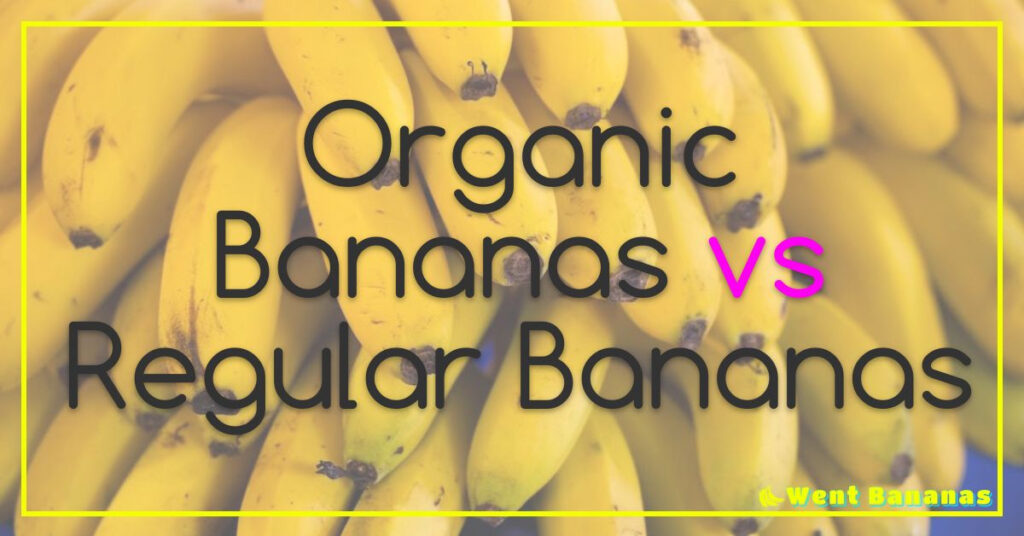Have you ever wondered why tennis players always seem to have a banana in hand during their matches? It turns out that this popular fruit offers a number of benefits, especially for athletes.

In this article, we’ll dive into the science behind the benefits of bananas, why tennis players specifically choose to eat them, and other types of food that offer similar benefits. We’ll also provide tips for incorporating more bananas into your diet.
Whether you’re an athlete or simply someone looking to learn more about the benefits of bananas, you won’t want to miss out on this informative read. So keep reading to learn more!
What are the benefits of eating bananas?

There are many benefits to incorporating bananas into your diet. Not only are they a delicious and convenient snack, but they also provide a host of nutrients that can improve your health and well-being.
One of the most notable benefits of bananas is their high potassium content. This mineral is essential for maintaining healthy blood pressure levels and can also help reduce the risk of stroke. Bananas are also a good source of vitamin C, which supports immune function and helps protect against chronic diseases.
In addition, bananas contain fiber, which promotes digestive health by aiding in the absorption of nutrients and preventing constipation. They are also low in fat and calories, making them an ideal snack for weight management.
But perhaps one of the most surprising benefits of bananas is their potential to improve mood. Bananas contain tryptophan, an amino acid that helps regulate serotonin levels in the brain. Serotonin is a neurotransmitter that plays a key role in regulating mood, sleep, appetite, and other bodily functions.
So whether you’re looking to improve your heart health or simply add some variety to your diet, there’s no denying that bananas offer a wide range of benefits for both body and mind.
Why do tennis players eat bananas specifically?
Tennis players have long been known to consume bananas during matches and practices, but why is this fruit so popular among athletes in this sport? The answer lies in the unique nutritional properties of bananas.
First and foremost, bananas are an excellent source of carbohydrates. This macronutrient is essential for providing energy to the body, which is particularly important for tennis players who engage in high-intensity movement and require sustained energy throughout a match or practice session.
In addition to carbohydrates, bananas also contain potassium. This mineral plays a critical role in regulating fluid balance within the body, which is crucial for preventing dehydration during extended periods of physical activity. Furthermore, potassium helps to reduce muscle cramps and soreness, allowing tennis players to perform at their best without being hindered by discomfort.
But that’s not all – bananas also contain fiber, which aids digestion and promotes feelings of fullness. This can be especially beneficial for players who need sustained energy throughout a long match or tournament.
Another reason why tennis players specifically opt for bananas may have to do with convenience. Bananas are easy to transport and eat on-the-go without requiring much preparation or cleanup. They also come in their own natural packaging (the peel), making them a convenient choice for athletes who need quick fuel between sets or games.

Overall, while there may not be anything inherently special about bananas when compared to other fruits or foods with similar nutritional profiles, their combination of carbohydrates, potassium, fiber and portability make them an ideal snack option for tennis players looking to fuel up quickly and efficiently on game day.
The science behind the benefits of bananas for athletes is fascinating.
Bananas have long been known to provide numerous health benefits, particularly for athletes. But what is the science behind these benefits?
Firstly, bananas are packed with carbohydrates, which are essential for providing energy during physical activity. They also contain natural sugars like fructose and glucose that can be quickly metabolized by the body to produce energy.
In addition to being a great source of energy, bananas also contain potassium. This mineral is important for regulating fluid balance in the body and preventing muscle cramps during exercise. Potassium also plays a key role in maintaining normal heart function.
Bananas are also rich in vitamin C and B6. Vitamin C helps support a healthy immune system, while vitamin B6 is important for protein metabolism and the production of red blood cells.
Finally, bananas contain fiber which helps regulate digestion and improve gut health – an often overlooked aspect of athletic performance.

« Solutions for Dry Banana Bread Batter: Tips and Tricks for Perfectly Moist Bread Every Time
The Top Most Amazing Banana Beauty Tips and Benefits »
Overall, bananas offer numerous benefits for athletes due to their high carbohydrate content, potassium levels, vitamins C & B6 content as well as fiber that aids digestion – making them an ideal food choice before or after exercise!
Other types of food that provide similar benefits to bananas.
While bananas are a popular and well-known source of essential nutrients, there are other types of food that provide similar benefits. For example, sweet potatoes are an excellent source of potassium, which is important for maintaining healthy blood pressure levels.
Additionally, spinach is a great source of iron and vitamin C, both of which are crucial for maintaining a healthy immune system. And if you’re looking to increase your fiber intake, consider adding chia seeds to your diet – they contain more fiber per serving than bananas do!
While bananas may be the go-to choice for many people seeking these essential nutrients, it’s important to remember that there are plenty of other foods out there that can provide similar benefits. By diversifying your diet and exploring new options, you can ensure that you’re getting all the nutrients your body needs to thrive.
Tips for incorporating more bananas into your diet
Bananas are a versatile and nutritious fruit that can easily be incorporated into your daily diet. Here are some tips for adding more bananas to your meals:
1. Start the day off right: Add sliced bananas to your morning bowl of cereal or oatmeal for a nutritious and filling breakfast.
2. Make a smoothie: Blend frozen bananas with other fruits, yogurt, and milk for a delicious and healthy smoothie.
3. Bake with them: Use mashed ripe bananas in recipes for muffins, breads, or pancakes as an alternative to traditional sugar or oil.
4. Swap out unhealthy snacks: Instead of reaching for chips or candy, grab a banana as a satisfying snack on the go.

5. Get creative with toppings: Top sliced bananas with nut butter and honey or cinnamon for a sweet treat that is both tasty and healthy.
Incorporating more bananas into your diet can provide numerous health benefits such as improved digestion, increased energy levels, and decreased risk of chronic diseases. So next time you’re at the grocery store, don’t forget to stock up on this superfruit!
Check out our other articles to find out even more about banana.
Bananas are nutritional powerhouses! With so many benefits, it’s no wonder why they’re a staple snack of tennis players. From providing essential energy to reducing inflammation and aiding in muscle recovery, the list of health benefits that come with eating bananas is extensive. Whether you’re looking for a wholesome addition to your diet or an easy way to promote better athletic performance there’s no denying that this superfood deserves its spot as one of the best post-workout snacks around. Check out our other articles to find out even more about banana and how to improve your health with them!










